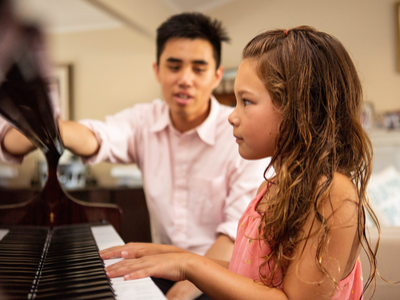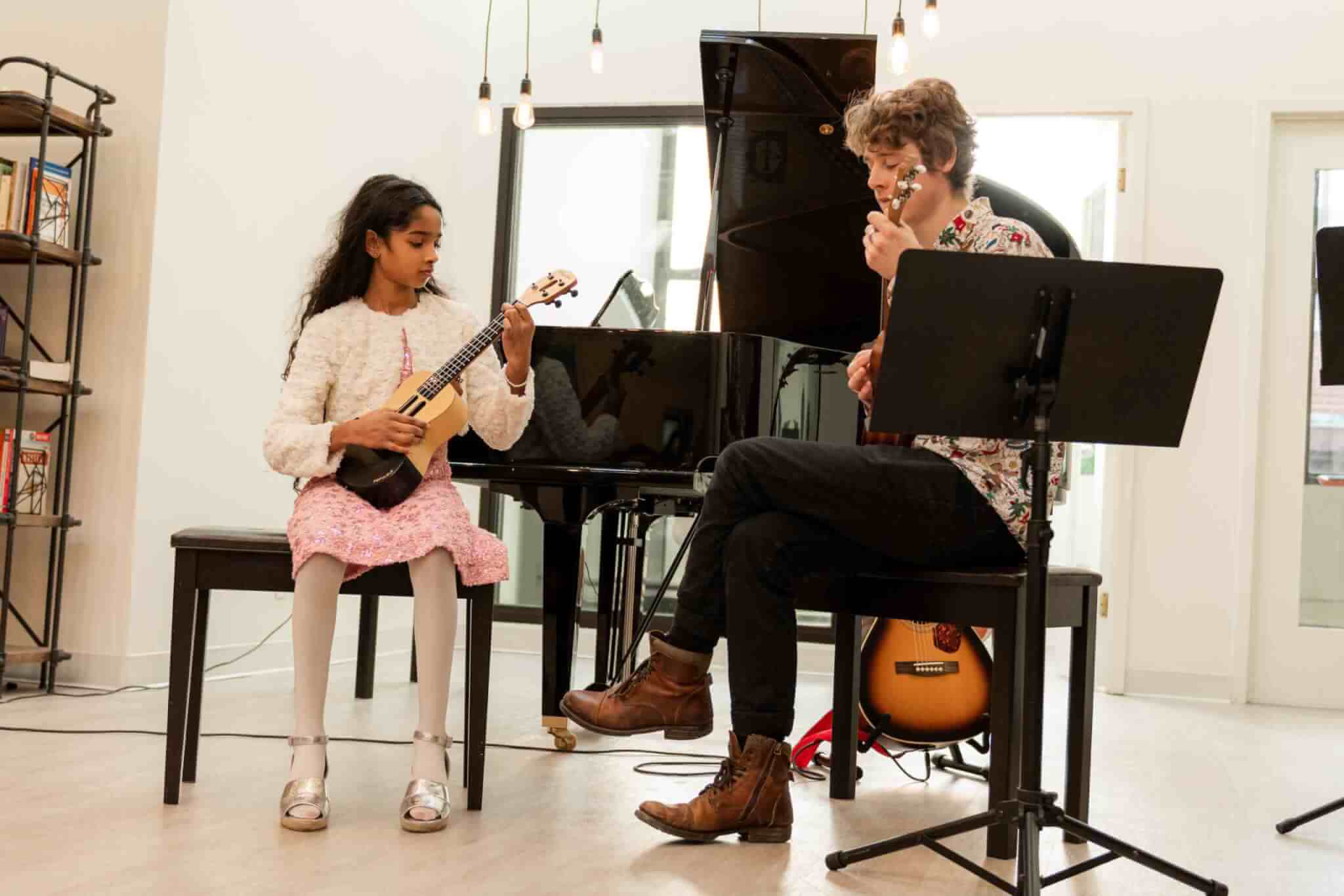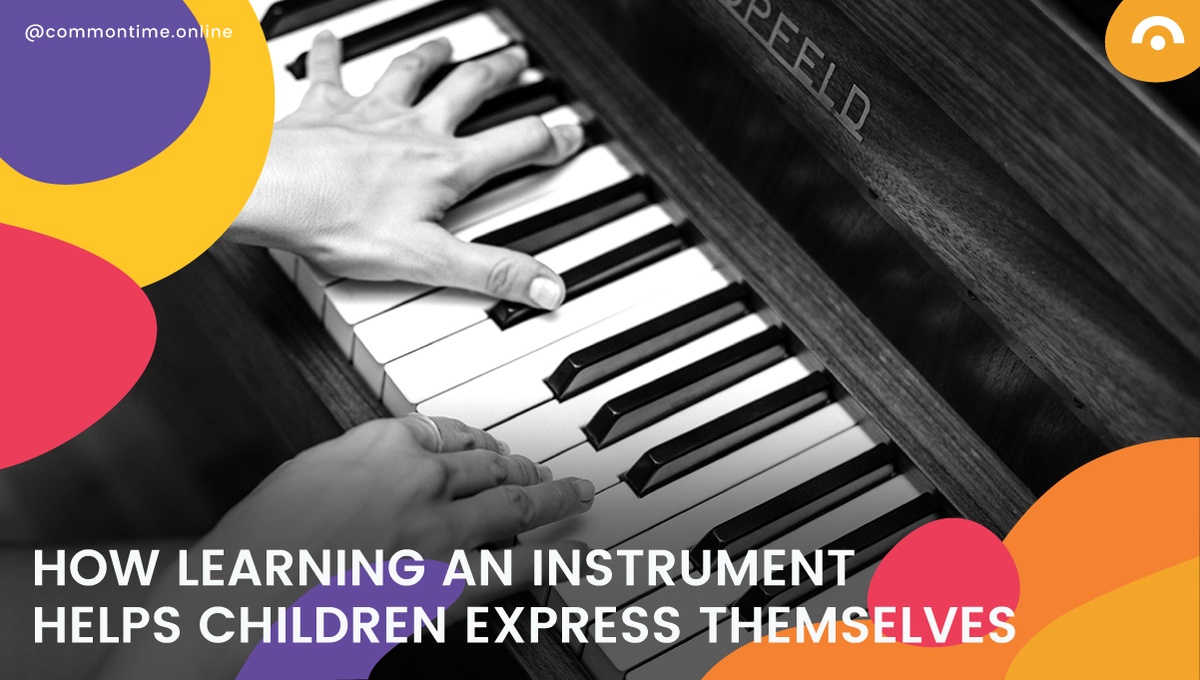Music enhances our lives in many ways. It improves our mood when we are down, motivates us to work out more effectively, encourages us to move our bodies, and provides a lot of entertainment. Instilling a love of music in children and learning to play an instrument at a young age has numerous advantages, ranging from teaching patience to boosting self-esteem.
Children may struggle to express themselves verbally at times, which can lead to feelings of frustration, confusion, and sadness. In an increasingly plugged-in world where stress levels are rising, now is an excellent time to consider enrolling your child in a music class.
Even if your child has no desire to become the next Mozart, encouraging them to learn an instrument will keep their minds sharp in the classroom. Learning music can also boost a child's confidence and even improve their social and emotional development. Playing music with others helps your child's listening skills, which can contribute to long-term healthy communication.
Here are a few ways how learning an instrument can grant your child the space to express themselves in ways that transcend words.
It reduces stress and anxiety

It’s no secret that listening to music has the ability to calm us. However, playing an instrument is even better for the brain. Learning to play a musical instrument will provide your child with a sense of accomplishment, which will activate the brain's reward centres, causing endorphins - the "feel-good" hormones - to be released, reducing stress and keeping your child active. Playing a musical instrument can improve your mood and boost your self-esteem in addition to reducing stress and anxiety. Learning to play a musical instrument may be a good option for you if you want to reduce stress and anxiety while also improving your mood.
It teaches patience

In today's fast-paced world, it's easy to get caught up in one's haste and become stressed. When learning to play an instrument, one must proceed slowly and methodically. You can't try to play a song as quickly as possible without making any mistakes; instead, you must concentrate on each individual note and ensure that you're playing it correctly. Learning to play a musical instrument also helps to instil discipline. To get better at playing an instrument, you must practise on a regular basis. This means taking out time every day to sit down and play, even on the days you don't feel like it. This discipline can carry over into other aspects of your life, such as schoolwork.
It improves self-expression

It can be difficult for children to understand and express how they feel as they grow and develop. Their hormones change, they change, and the world around them changes. Music is, without a doubt, a means of self-expression. It provides a vehicle for a child to express themselves in a healthy, fun, and expressive way. The child is able to articulate and convey their deepest feelings creatively, in a way that transcends the need for language, through activities such as songwriting, creative writing, or learning to play an instrument. With such a diverse range of musical genres, there will always be one form or another that can encapsulate and release and share a feeling.
It ignites self-confidence

Learning to play an instrument provides children with a safe space to practice and fail in, it gives them the skill to acknowledge feedback in order to make necessary adjustments and also gives a sense of self-belief as they begin to see positive results. The confidence gained from playing an instrument can be applied not only to their musical time but also to their daily lives. When a child sees their hard work and progress paying off, it boosts their confidence and self-esteem because they finally feel a sense of accomplishment. Picking up an instrument may inspire your child to take a huge leap of faith and do something outside of their comfort zone.
Playing an instrument is fun!
While we can list out several more reasons why learning an instrument will help your child heal, what matters most is that it’s enjoyable for the player. While other hobbies like watching TV or playing video games are passive, playing music actively engages and stimulates the brain, making you feel happy and occupied!
As you can see, listening to and learning music can have a wide variety of positive effects on your child’s mental health. Even those with no musical background can benefit from learning a new instrument, taking a vocal lesson, or simply clapping along to their favourite beat. Parents can even enjoy the benefits of music education alongside their children by learning alongside them! Just by testing your abilities and having fun while playing, you are strengthening important connections in your brain and body. This is why music can play such an important role at all stages of life.
Are you ready to get started? CommonTime offers high-quality, accessible learning opportunities in music, dance, theatre, and visual arts. Click here to browse CommonTime’s growing catalogue of vetted, professional musicians, or search for another art form altogether!
Don’t have a CommonTime account? Sign up for free and start booking your online music lessons today!



